Heresy Press Newsletter #10
In this issue: News; guest essay by Jonah Winter; Book Club announcement; call for submissions; gift ideas.
News
• Publisher’s Party in New York City
On December 11, 2024, more than 20 distinguished guests, including 5 Advisory Board members, attended Heresy Press’s celebration of fearless publishing and creative freedom. After speeches by Tony Lyons (Skyhorse Publisher) and Bernard Schweizer (Director Heresy Press), two Heresy Press authors read from their work—Katerina Grishakova from The Hermit and Alan Fishbone from Animal: Notes from a Labyrinth.
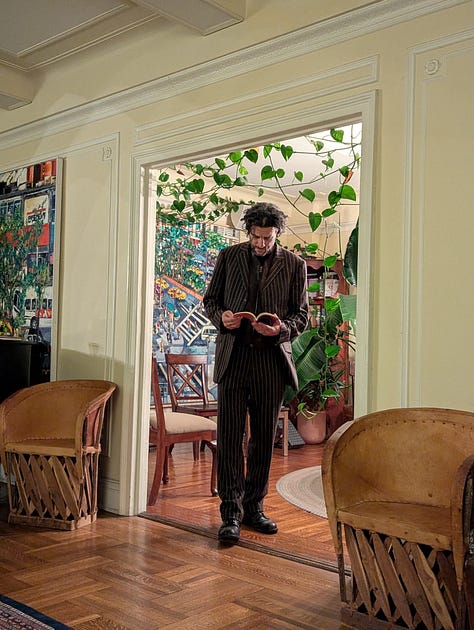
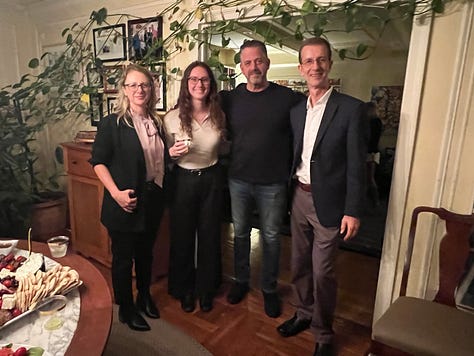
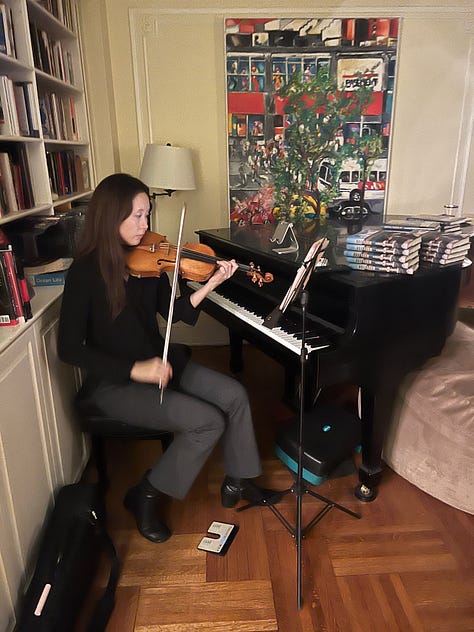
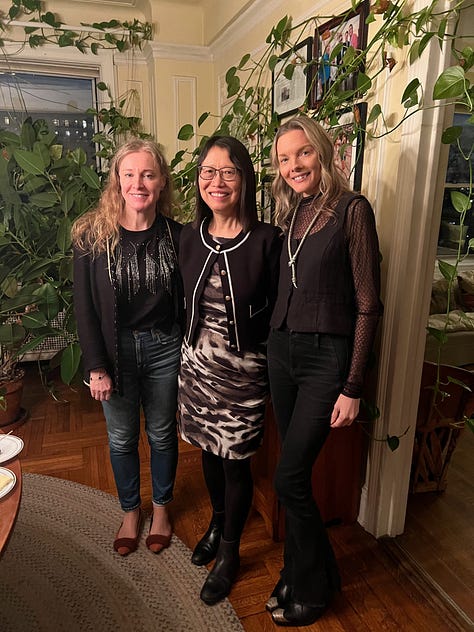
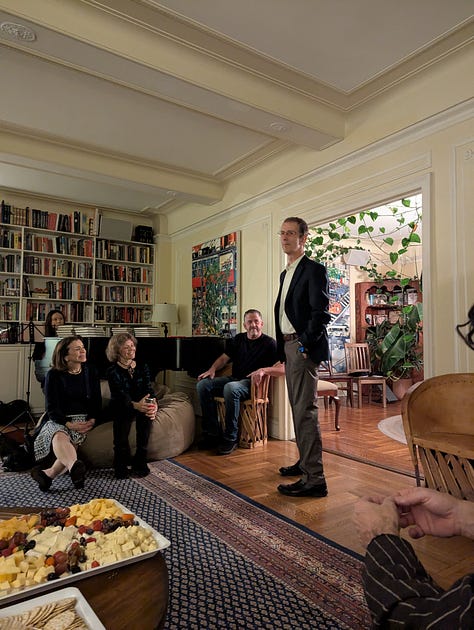
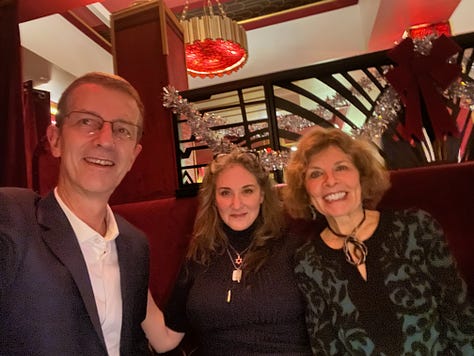
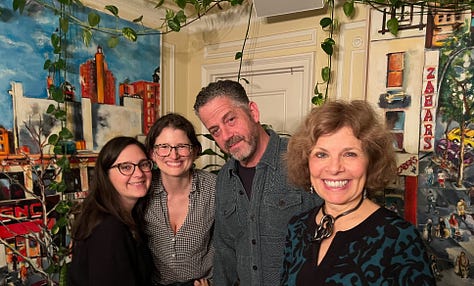
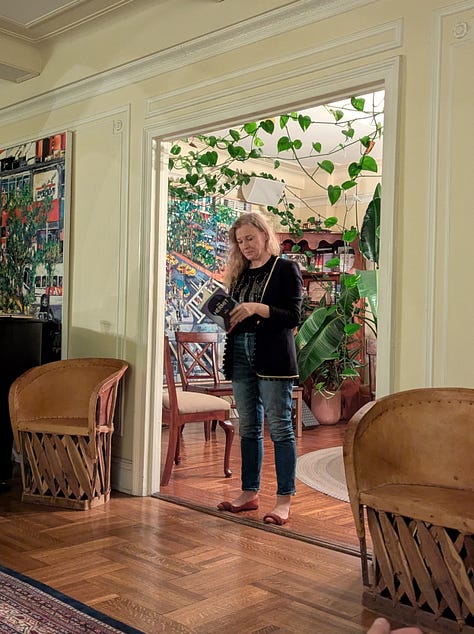
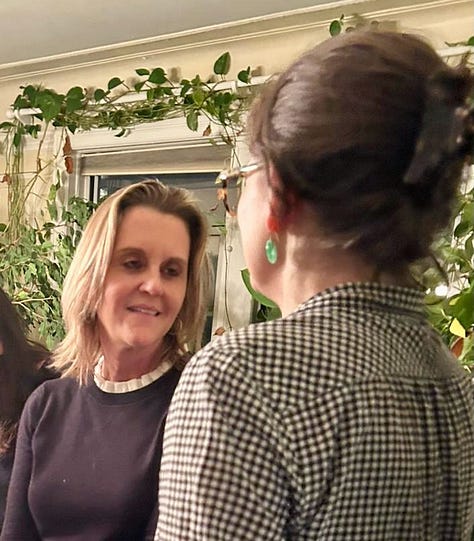
It was rewarding to see so much support from across the spectrum of literature, heterodoxy, and free speech for our boundary-pushing publishing venture. Participants at the event included writers and thinkers associated with FIRE, ACLU, The Free Press, The New York Times, The Unspeakable Podcast, the Aspen Center, Skyhorse, and others!
→ Read a transcript of Bernard Schweizer’s speech at the reception.
• Richard Walter’s Deadpan reissued by Skyhorse under the Heresy Press imprint!
On December 10—the exact publication day—Richard Walter held a well-attended book launch party and signing at Vroman’s bookstore in Pasadena, CA.
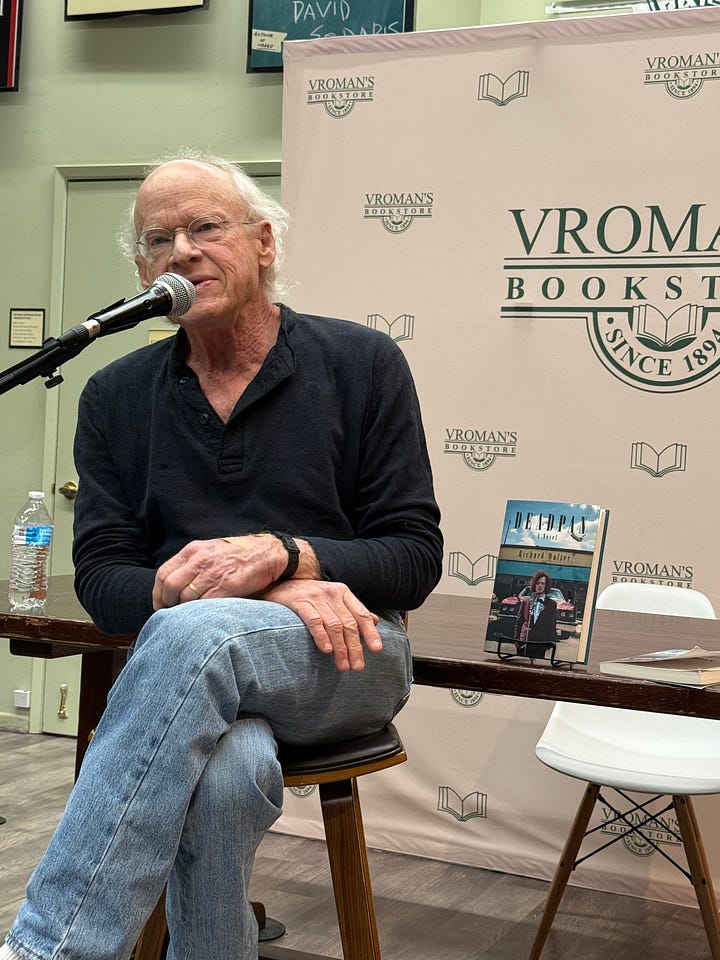
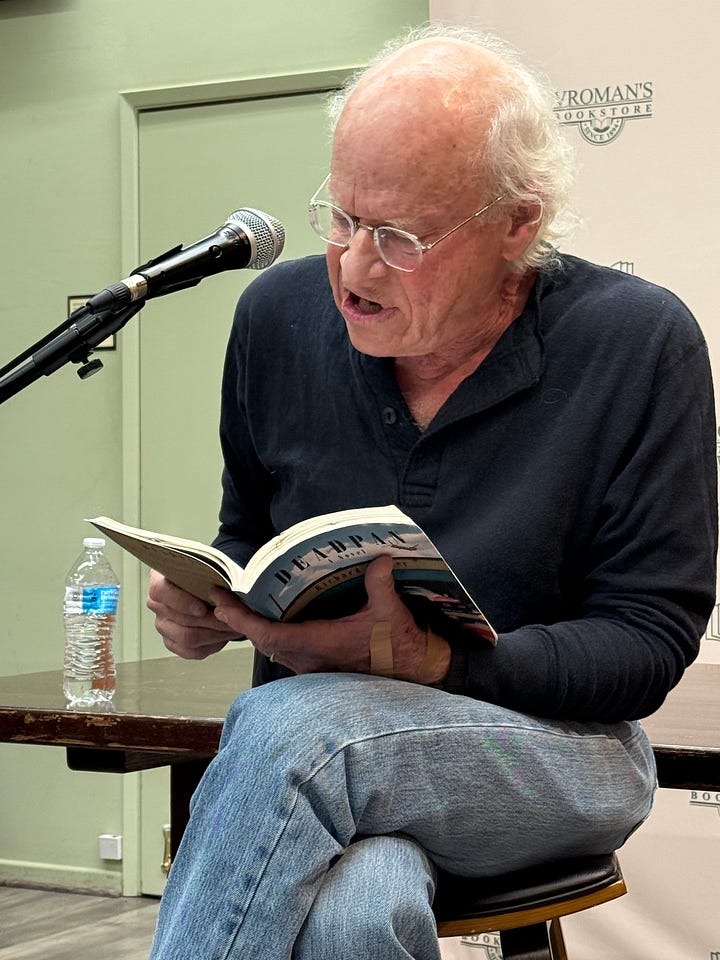
→ Buy the hardcover edition of Deadpan here.
• Book reading & signing by Alan Fishbone
On Friday, the 13th of December, Alan Fishbone read from Animal: Notes from a Labyrinth at The Francis Kite Club in New York City to a rapt audience.
• Heresy Press reopens submissions window
Heresy Press is once again open for submissions. All fiction submission are to be made via the online submission portal. Bear in mind that the wait time is a minimum of 4 months after the submission was received, and it can be as long as 12 months before a decision is made whether to accept or reject a project. This length reflects how seriously we take each and every submission.
We accept only novels via the submissions portal. If you have a non-fiction project that you think might be suitable for Heresy Press, please send a query to bernard@heresy-press.com.
→ We look forward to receiving your work!
• New novel under contract—Tomorrow, the War
Tomorrow, the War by Max Watman is a quintessential Heresy Press book that flies in the face of every identity-politics shibboleth there is, especially the reflexive fear of cultural appropriation. The story features black, white, mixed-race, Mexican, Native American, Yankee, Southerner, Jewish, Christian, etc. characters. By the lights of the “Lived Experience” dictate (see essay below), this book would have to be written by a committee of about eight people. But Heresy Press doesn’t play by these creativity-crushing rules. Tomorrow, the War is an epic, multi-plot historical novel set in Virginia and the US Western territories during the decade preceding the American Civil War, comprising a slave narrative, a musical-prodigy story, outlaw lore, military history, and more, presenting a vibrant cultural tapestry of a turbulent era of American history.
→ The novel is slated to be published in fall of 2025.
II. Guest Essay
“Lived Experience”
By Jonah Winter
At first glance, the “Lived Experience” rule now being enforced by many American publishers, especially in the children’s book world, would suggest that an author must have lived an experience – relating to some aspect of the author’s identity – before having the moral right to write about it.
But this is not what this misleading term actually means. The point of this rule is not to enforce memoir as the only acceptable literary genre but rather to prevent members of an “empowered” group – e.g., white, male, heterosexual, “cisgender,” etc. – from writing about anyone considered a member of a “marginalized” group – e.g., Black, female, gay, transgender, etc. In other words, “Lived Experience” is not about lived experience per se but about “social justice” – or what’s now called social justice. If any aspect of your identity as a writer could be described as “empowered,” then you are not allowed to write about the “marginalized” counterpart to that aspect of your identity. I put these words in quote marks because the question of who’s now empowered and who’s marginalized in the literary world is debatable, and the term “marginalized” is also increasingly being replaced by “previously underrepresented.”
In the children’s book world, especially, publishers are tripping over themselves in an effort to discover and publish “previously underrepresented” voices – a corrective, to be sure, which, on its own, would be a wholly positive thing were it not inextricably intertwined with the full-court press to eliminate the voices of those accused of “appropriating” subject matter which “does not belong” to them. Those very words have been used in rejection letters I’ve received from editors enforcing the Lived Experience rule.
To view artistic subject matter as property, and to consider usage of that subject matter as potential theft by an empowered tribe from a disempowered tribe, is to reduce all art to an economic justice calculus and to reduce all subject matter to the level of patents, awarded on the basis of tribal membership. In this new system of evaluating and publishing literature, literary merit is secondary to “diversity, equity and inclusion.”
The advocates for Lived Experience would have us believe that there are literary motivations for their edict – that “lived experience” writing is actually better. If they truly believed this, they would enforce their rule uniformly – regardless of the author’s identity. But this new doctrine isn’t really about literary quality. It’s about a Marxist understanding of art and literature as a power struggle between the identity haves and have-nots. It’s rooted in the complaint that white male authors, in particular, have dominated what literature gets published for far too long – and so, as protestors often chant, “time’s up.”
That said, this push for cultural wealth redistribution isn’t just economic – it’s a religion. The sanctimoniousness, the righteous indignation, and the orthodoxy of this new rule all bear the marks of a religious crusade. And in this grim, Puritanical religion, someone needs to be regarded as evil, someone needs to be punished, someone needs to atone for collective sin – and that someone is, of course, The White Man. The only ticket out of excommunication and punishment for a white person in the publishing world is full confession. Confess, point the finger at someone else, as in the Salem witch trials – and you will survive. Sign a petition to get some fellow white author’s book cancelled. Make performative gestures as a white editor, enforcing the “Lived Experience” rule, telling your white authors that they no longer have the right to tell stories about nonwhite people. Form an online alliance called “Reading While White,” solely devoted to calling out fellow white people as racist. Do these things, and you will survive.
Among so-called “progressive” whites, the notion that all white people are sinners, whose redemption may only be achieved through full confession of guilt, has risen to the level of catechism in the new orthodoxy now dominating the cultural sphere. Ibram X. Kendi spelled out this catechism in his gospel text on anti-racism, which preaches the idea that all white people are either racists or anti-racists. This is a fundamentalist – and fundamentally racist – approach to understanding reality. It is, as it were, black and white. No grey is allowed into the stark chambers of this fire-and brimstone-church – where lesser gospel-maker Robin DiAngelo also proselytizes her anti-white doctrine (which is somewhat “problematic,” considering that she’s white and has profited, as a white person, to the tune of millions of dollars, promoting the ideas of “white fragility” and “diversity/equity/inclusion” to large congregations of white sinners, so eager for soul-saving redemption that they fail to notice the irony that their preacher is a white person getting rich peddling the apparently profitable doctrine of "white privilege").
I am in no way saying that systemic anti-Black racism does not exist or is not an intrinsic part of American history. I myself have written many nonfiction children's books on this topic, before being told repeatedly by countless white editors that I, as a white person, am no longer allowed to do this anymore due to the "Lived Experience" rule. What I'm saying is that this new religion has mainly to do with the redemption and profit of white people – and does little to end systemic racism. This performative self-flagellation serves to promote the careers and societal position of those white virtue signalers who do it. And it's about as useful for Black people as the empty "land acknowledgment" statements are for Native Americans. Nor is there any “acknowledgment,” among the elite white parishioners of this upper-crust church, of the many white people who live in poverty, who are not privileged.
If you believe in this creed, requiring, among other things, the casual demonization of white people and the branding of them as “empowered,” then of course you’re going to believe that the Lived Experience code is not only fair, but that it’s absolutely required, the minimum we can do to make up for the centuries of injustice brought to us by white male heterosexual domination. In other words, turnabout is fair play.
But please note, this punitive edict is not for all white or male or heterosexual or “cisgender” writers, most of whom are left alone. The pillory is reserved mainly for those “empowered” authors who, in daring to write outside their own cultural experience, use empathy, imagination and research – those elements most essential to writing, aside from verbal ability, which, compared to identity, is no longer a priority. At its core, Lived Experience is stridently anti-literary. The promoters of this rule don’t know and/or don’t care what makes good literature. And these ideologues are the ones now guarding the gates of the publishing castle, deciding who has “the right” to tell what story, when the only question should be: Is it any good?
About the author:
Jonah Winter is the award-winning author of more than forty nonfiction picture books that promote environmental awareness and social and racial justice. Among them are Here Comes the Garbage Barge!; Ruth Bader Ginsburg: The Case of R.B.G. vs. Inequality; My Name is James Madison Hemings; Barack; The Founding Fathers!; and Lillian’s Right to Vote. Winter is a Jane Addams Children’s Book Award recipient and Kirkus Prize finalist.
III. Heresy Press Book Club
Heresy Press plans to start a Book Club. Meetings will be virtual (on zoom) and last for ca. 2 hours. The second hour involves the author of the book under discussion. Book Club members will receive a free e-book of the club adoptions, and print copies will be sold at a discount to members. Meetings are projected to be be bi-monthly, and every meeting will be dedicated to the latest new book issued by Heresy Press. Since we issue 6 new books a year, every book published by Heresy Press will automatically be a club adoption.
Dates and Times: to be announced.
We are looking for volunteer Book Club facilitators. Please consider becoming more closely involved with Heresy Press by guiding Book Club meetings.
Sign-up bonus: Every new member of the Book Club receives a free print copy of the short story anthology Nothing Sacred, Heresy Press's very first book.
→ To sign up for the Book Club, please log on here.
IV. Call for Flash Fiction and Guest Essay
• Please submit your flash-fiction (up to 500 words) for consideration, to be published in the Speakeasy newsletter. Submit your story to bernard@heresy-press.com. Submissions are considered on a rolling basis.
• If you would like to contribute a short, 800-word critical essay on any aspect of the literary craft or the world of publishing, please submit the article to bernard@heresy-press.com. Submissions are considered on a rolling basis.
V. Heresy Press Gift Ideas
→ Order books here.







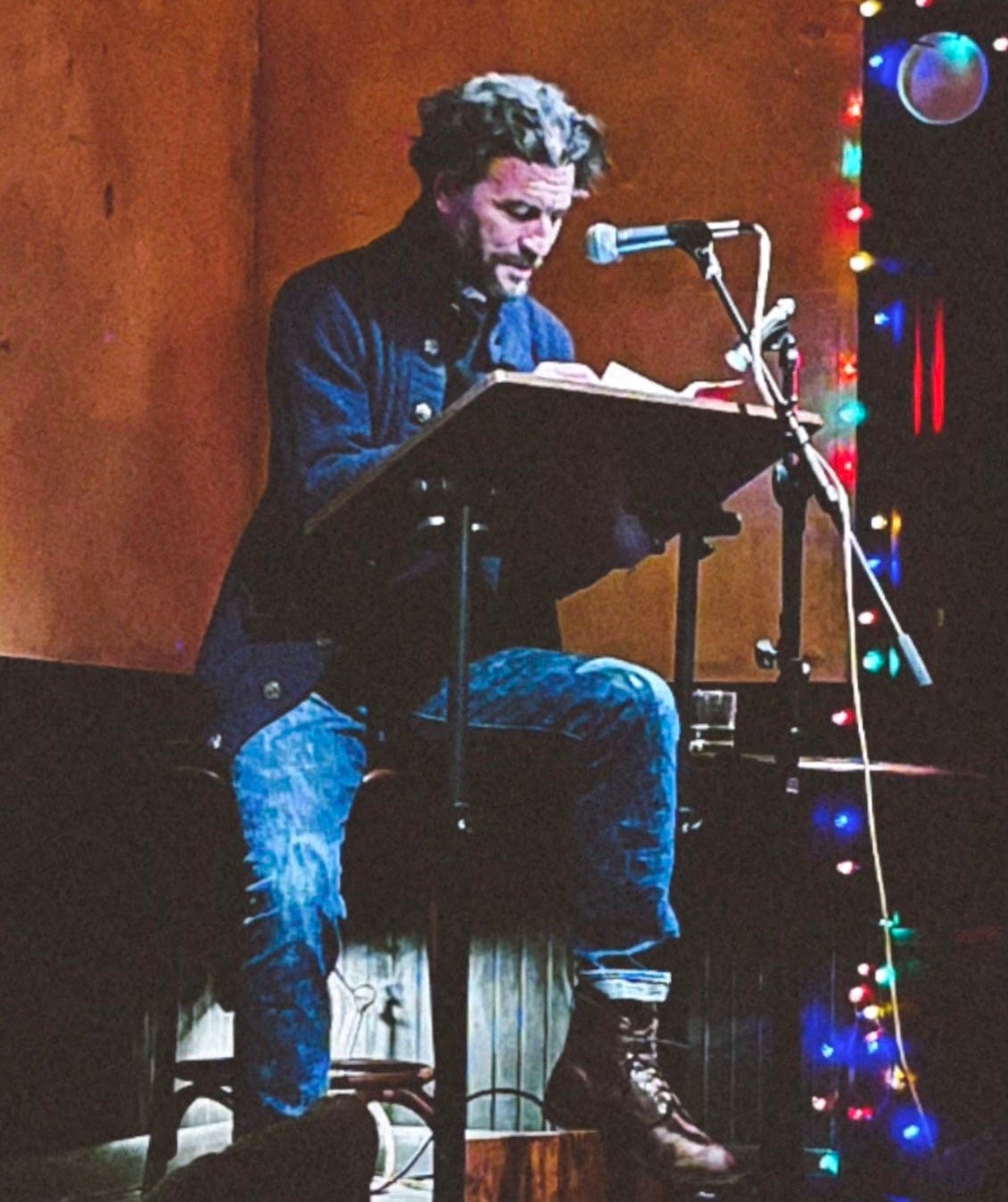
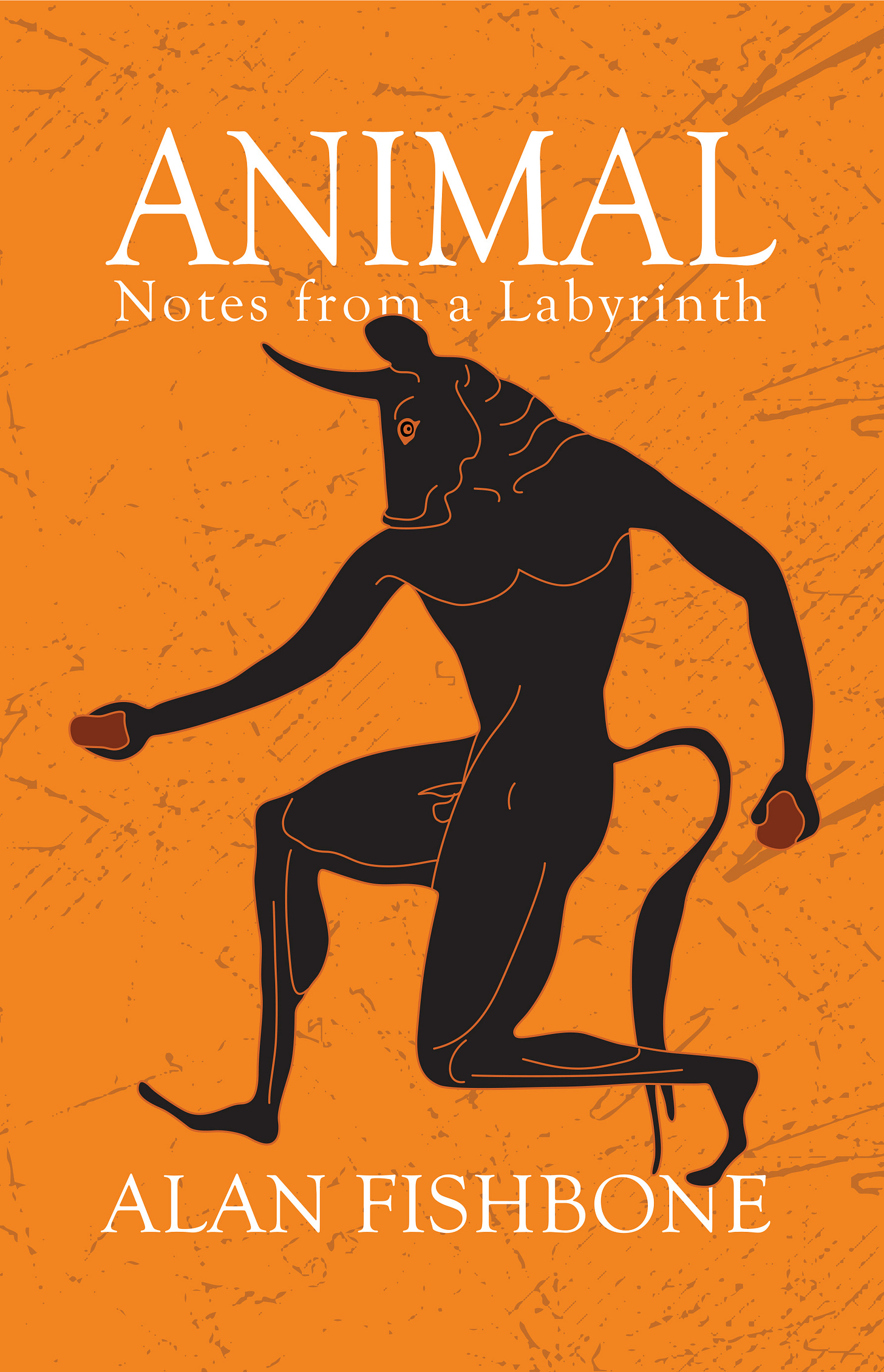


How does one write an essay for Heresy Press?